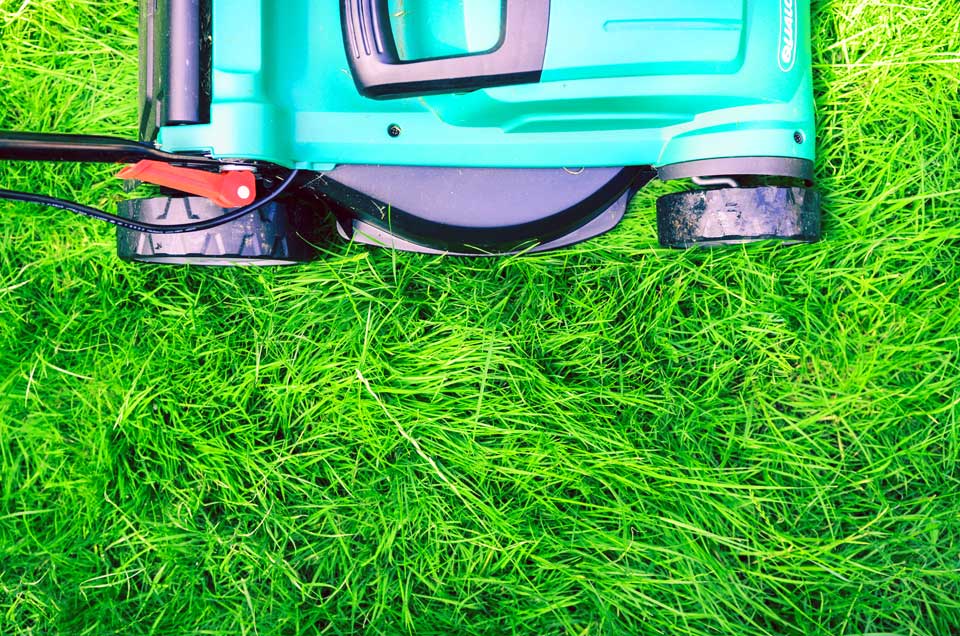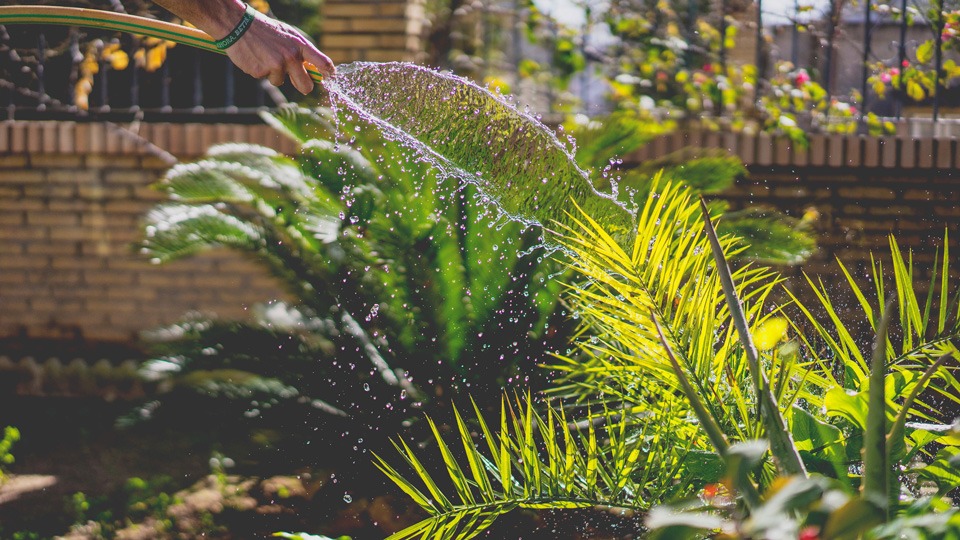
Being our most important natural resource, conservation of fresh water is a universal responsibility. Here are four simple ways that you may be able to reduce your fresh water footprint and save on your water bill.

Use Less On Lawn Care
Did you know that nearly 60% of a person’s water consumption may be used on lawn and garden care?* Having a great lawn can really keep your home looking its best, but are you giving yours too much love? By just watering at the right time of day, you can prevent evaporation, with means the water sprayed is actually held in the soil to keep your plants and lawn watered throughout the day. It is recommended to water early in the morning, and to avoid watering during windy weather. It also makes sense to limit the amount of time spent watering, and during rainy seasons, it isn’t necessary to water every day. By cutting down on just a few minutes of watering, you’ll save money on utilities, several gallons of water, and your garden will still look stunning!
* http://www.nationalgeographic.com/environment/freshwater/water-conservation-tips/

Mulch Is Soil’s Best Friend
By adding a layer of mulch, you prevent evaporation, keeping soil is kept moist for longer. Not only is mulch water efficient, but it contributes by adding visual contrast to landscaping. Since it comes in a variety of materials and colors, you can also choose a color to accent your house and landscape. Synthetic mulch and wood mulch are the two most popular kinds. Synthetic mulch made from recycled products last for many years, and are a popular choice for playgrounds. Natural wood mulch will need to be replenished annually as it breaks down, improving soil by adding organic matter and slow release compost. If your garden has a lot of water runoff, which mulch is important since some wood mulches can wash away more easily than synthetic (rubber) mulch. Many homeowners prefer wood chips because of their natural look and tendency to stay grounded on windy days.* As wonderful as mulch is, there is another way to be water smart in the garden. You can also use rain barrels to collect rainwater, which is free of chlorine, plus a little added nitrogen picked up in the atmosphere on its way down. Every drop counts!
* http://homeguides.sfgate.com/comparison-between-rubber-mulch-wood-chips-51700.html

Water For Washing
Do you enjoy a relaxing bath at the end of a long day? Did you know that it takes ~70 gallons of water plus the energy required to heat it? Showers are a great water smart alternative since they don’t use nearly as much water, especially with a low flow shower head.*
This goes for washing dishes, too. Typically, water usage for washing dishes isn’t very high, but every little bit adds up. A completely full dishwasher prevents the need to hand wash every dish individually, with the following rinse in the kitchen sink. Modern automatic dishwashers are designed to be efficient and use a minimal amount of water.* Not to mention the time and energy it saves!
* http://www.nationalgeographic.com/environment/freshwater/water-conservation-tips/

Drinking Water
Since bottled water is transported great distances before it is consumed, it is better to avoid it when possible. Many bottled water companies also use a reverse osmosis system to produce their products. Even though Reverse Osmosis (RO) is a popular option for taste and quality, the bigger picture effects on conservation may be surprising. For every gallon purified by RO, four gallons (up to 12) are wasted. By using an inline or gravity water filter, you only use the water you drink, and no water is wasted. Most vendors offer water filters at a reasonable price with many only needing to be replaced once every six months or more. Other kinds of water wise treatments include UV filters, Alkaline Water Ionizers, and others. By finding what works best for you, you can keep your lifestyle and help conserve our most important natural resource.
